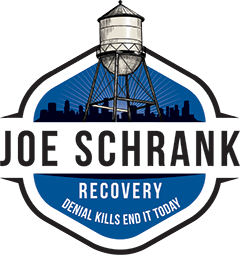Rehab can be a life changing experience, but it also has its limitations. In one sense, it is inherently flawed. Addiction is a chronic and relentless illness, and the cultural paradigm is to treat it only in acute circumstances. In other words, we wait for the looming crisis to hit, and then after a 30 day treatment experience, we offer a hearty handshake, an AA meeting book, and good wishes. That’s a really bad plan for a chronic condition. Compare that to other chronic health conditions or even a relatively minor surgery. An ACL surgery is followed by months of follow up care and physical therapy. After cancer is in remission, there are monthly check ups for a minimum of 5 years. With bariatric procedures, there is additional support with nutritional counseling and workout regimes to ensure sustained success. For all the rhetoric regarding addiction and mental illness as “diseases,” a treatment modality is discarded in favor of behavioral modification, shame, and anger when there is a setback. As providers, we have a long way to go in developing ways to arrest addictive behavior and sustaining change.
The ancient Greeks had one treatment plan for all mental illnesses: “be not idle, be not alone.” One of the biggest risk factors for relapse is isolation. Another is being idle. While rehab can caution people about these issues, real world experience is a much different thing. When strategizing to win a football game, sitting in the locker room and talking will only do so much, because sooner or later, people have to take the field and see what happens. Recovery never takes place in theory; if it is going to take root, it must be put into practice. After many years of seeing a revolving door at residential treatment centers, it became clear that helping the person in his or her own environment needed to be developed.
Creating a Recovery Plan to Fit Your Life
1:1 treatment is a protocol of total immersion therapy. Joe will create an individualized recovery plan informed by your life and your needs. He will live with you, travel, and integrate seamlessly into your life to create a cocoon around you until self-reliance is a viable option. The ultimate goal is independent, self-regulated recovery. Joe has extensive experience working in all kinds of business and family environments with a proven record and ability to create sustained change. This service is available globally and on a short- or long-term basis.
While some people dismiss this procedure as over indulgent or babysitting, the truth is we all do better when we are with someone. Everyone can find their way to the gym, and we all know that working out will help to achieve our physical goals, be it strength or weight loss. But if it were truly that easy, why do so many of us fail? Having a personal trainer improves outcome. The knowledge, values, and skills of the trainer applied in real time will help. While this service isn’t available to all (it is in fact available to very few), it should be available to everyone. In Joe’s fantasy world, everyone who needs one gets a treatment provider in their own environment. Having providers only in a treatment center setting would be great If we only needed to be sober in the treatment center. The world at large does not support a sober lifestyle. Creating a sober life is like a salmon swimming upstream: we all need every advantage we can get to make it all work and last.
An additional benefit of the 1:1 method is that it demonstrates sobriety to the court. Family court does not like substance abuse, and parents with a history of abuse will not fare well in family court with a mere promise of sobriety. Society wants verification by a trusted third party.
